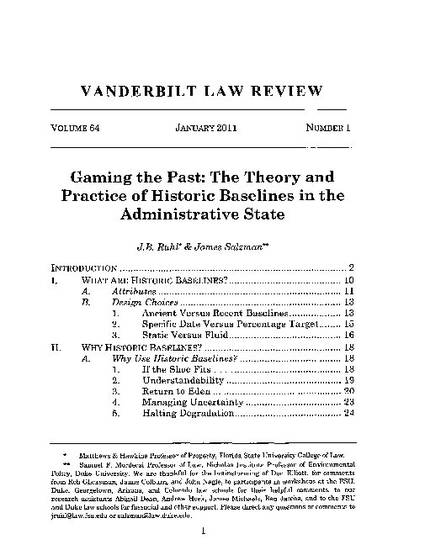
- environmental regulation,
- land use,
- climate change,
- policymaking
This article explores in detail the attributes and operation of historic baselines. That historic baselines are found throughout regulatory law is no accident. Particularly when the policy goal involves turning back the clock or halting an undesirable trend, historic baselines have distinct advantages compared to alternative techniques for standard setting. These advantages include rhetoric, familiarity, and flexibility. The use of the temporal reference point lies at the heart of what makes historic baselines distinct in this respect, yet it is also what makes them qualitatively different for purposes of gaming. Leveraging the past provides an additional dimension to the gaming potential found in other techniques, such as technology- or cost-based goals. This very attraction, however, equally limits historic baselines in some contexts. This limitation is most evident in climate change adaptation policy, where baselines simply do not easily fit because the policy goal is fundamentally about resetting the clock, not turning it back. There is no past to leverage when it comes to climate change adaptation. This may be true in other cases where massively transformative forces are at work, such as with the global financial crisis. Going back to the past may be appealing in these settings, but it is ultimately infeasible. Policymakers reaching for a more forward-looking policy thus should eye warily the appeal to the past embedded in historic baselines.
Available at: http://works.bepress.com/jb-ruhl/61/
